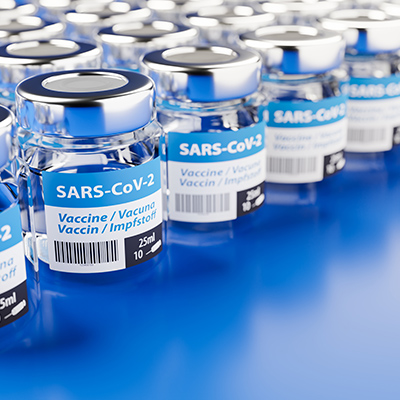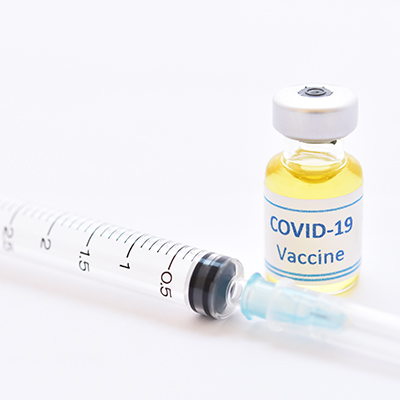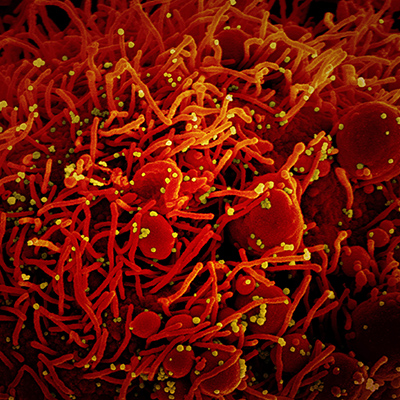May 11, 2020 -- Public-private partnerships could help meet the unprecedented need to manufacture and distribute safe and effective COVID-19 vaccines around the globe, according to leaders from the U.S. National Institutes of Health (NIH) and the Fred Hutchinson Cancer Research Center. They discussed how in Science on May 11.
Vaccine development normally takes years, but with COVID-19 it is moving swiftly, with several vaccine platforms moving toward clinical evaluation. Nucleic acid vaccines are the focus of many companies, including Moderna, BioNTech/Pfizer, CuraVac (mRNA-based), and Inovio (DNA-based), and offer a rapid pathway to the clinic.
Companies such as Sanofi and Novavax are working on traditional recombinant protein technology, which may also produce robust commercial products. Other companies (Janssen Pharmaceuticals, University of Oxford and AstraZeneca, Merck) are working on a variety of viral vector vaccines, which produce robust immune responses in a scalable manner.
In the new paper, the authors suggest that no one vaccine or vaccine platform alone is likely to meet the global need. Therefore, global leaders and organizations need to take a multipronged strategic approach to vaccine development.
The Accelerating COVID-19 Therapeutic Interventions and Vaccines (ACTIV) program is a collaboration spearheaded by the NIH with the following:
- The Department of Health and Human Services, including the Food and Drug Administration, Centers for Disease Control and Prevention, and Biomedical Advanced Research and Development Authority
- Other U.S. government departments including the Departments of Defense and Veterans Affairs
- The European Medicines Agency
- Representatives from academia and philanthropic organizations, more than 15 biopharmaceutical companies, and the Foundation for the NIH
The forum created by this collaboration allows for discussion and consensus on vaccine trial designs, rapid data sharing, and collaborations to rapidly and efficiently conduct vaccine efficacy studies.
Efficacy trials will require the close evaluation of the effect of vaccination on the severity of COVID-19 disease in a wide variety of epidemiological and medical settings among both younger and elderly populations as well as underserved minorities. Moreover, controlled human challenge trials should be conducted to explore how transmissibility can be reduced in the population.
ACTIV partners have come to an emerging consensus that vaccine trials need to either use common independent laboratories or contribute samples and data for the purpose of generating surrogate markers that ultimately speed licensure and an overall comparison of efficacy. They suggest instating an institutional review board as well as a common cross-trial data and safety monitoring board (DSMB) to manage the regulatory framework.
The authors called for harmonizing each step of the vaccine approach from the use of collaborating clinical trial sites to the monitoring of the efficacy trials through a common regulatory body. They also called for independent statisticians to have access to cross-trial data in real-time and centralized immune monitoring laboratories.
To meet the vaccine production needs, biomanufacturing infrastructure expansion must be immediately funded, the authors also stated. This includes increasing vaccine manufacturing capabilities as well as fill/finish facilities for vaccine distribution.
"We want to see multiple successful vaccines and vaccine platforms meet the global need of immunizing billions of adults, children and restoring economic and health to the world," urged Dr. Larry Corey, past president and director of Fred Hutchinson Cancer Research Center and a professor in its Vaccine and Infectious Disease Division, in a statement.
Co-authors included Dr. Anthony Fauci, director of the National Institute of Allergy and Infectious Diseases (NIAID); Dr. John Mascola, director of the NIAID Vaccine Research Center; and Dr. Francis Collins, NIH director.
Do you have a unique perspective on your research related to virology or infectious disease? Contact the editor today to learn more.
Copyright © 2020 scienceboard.net










